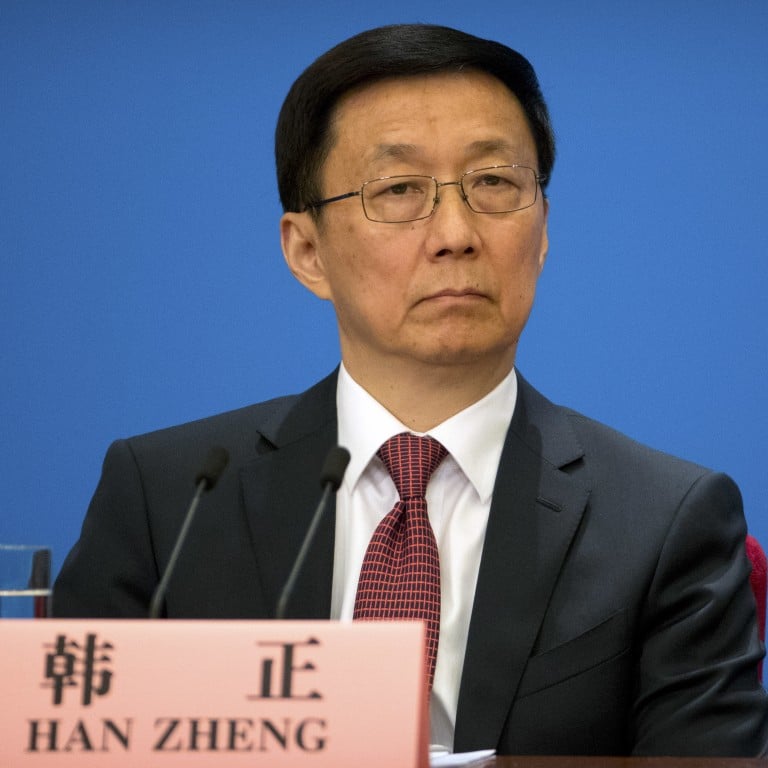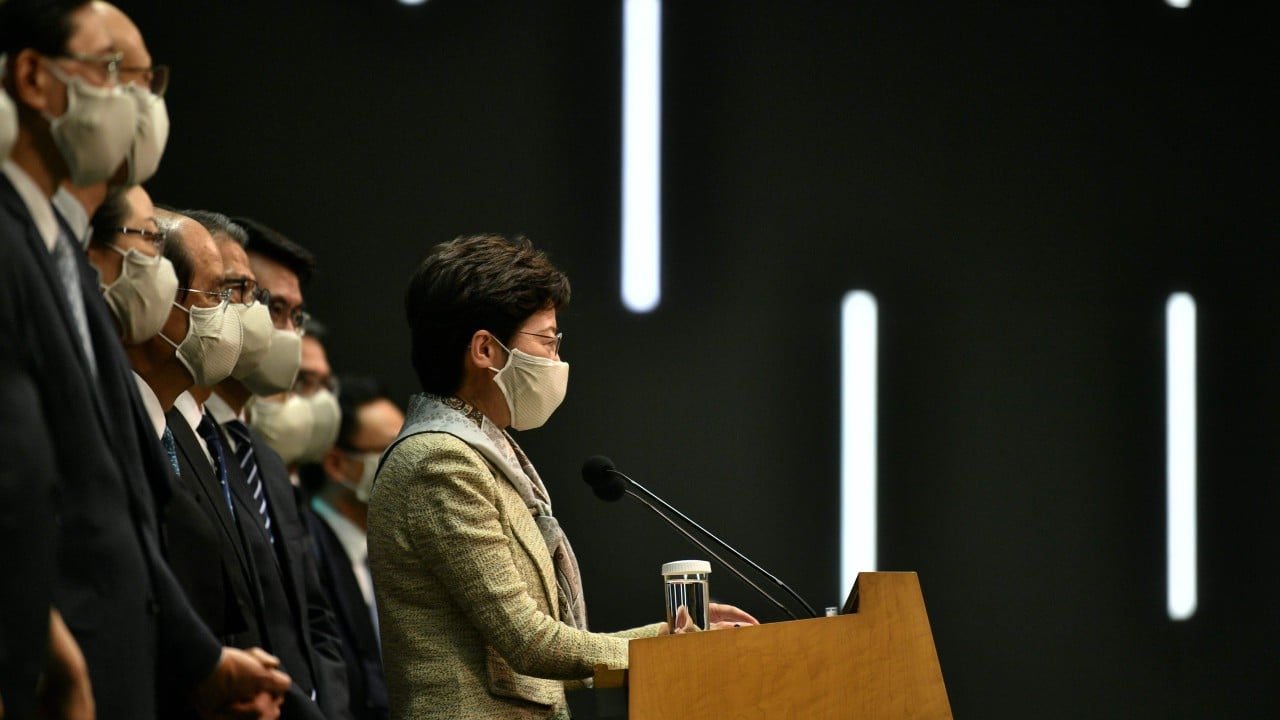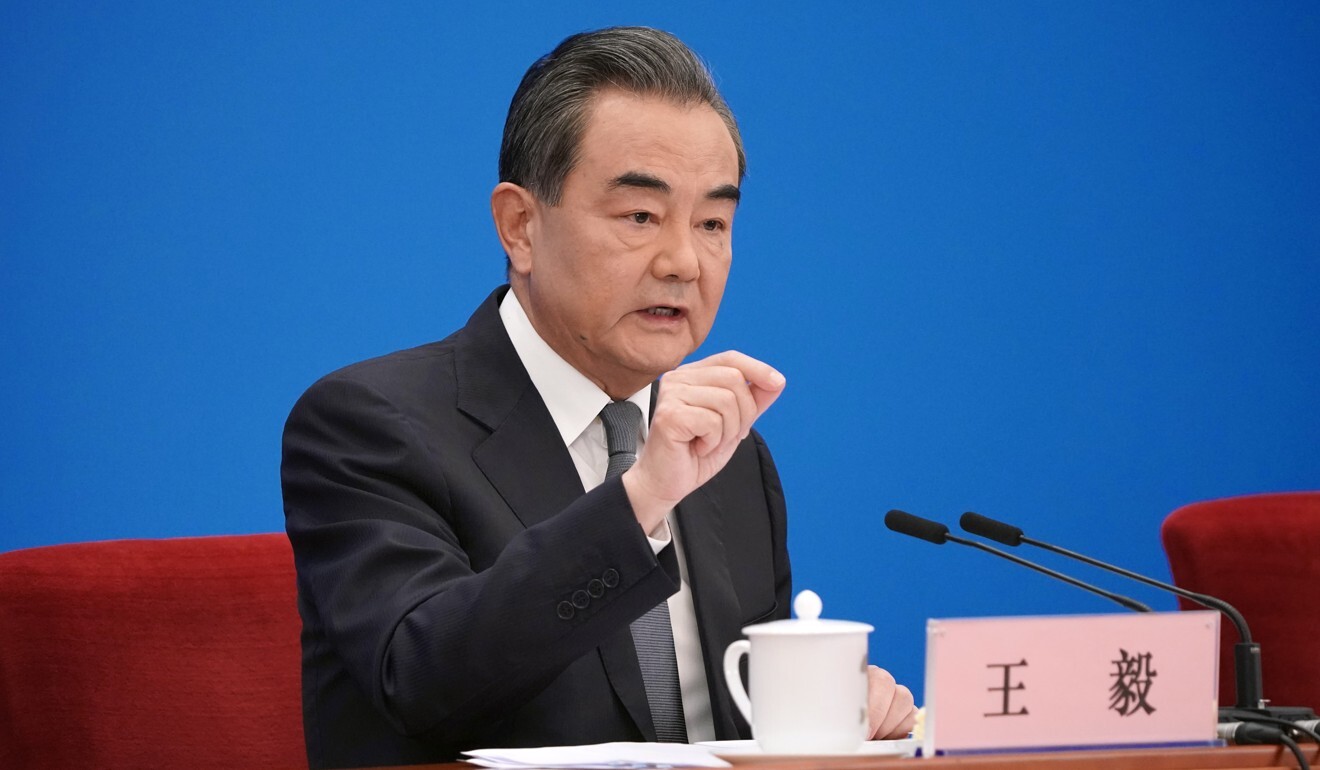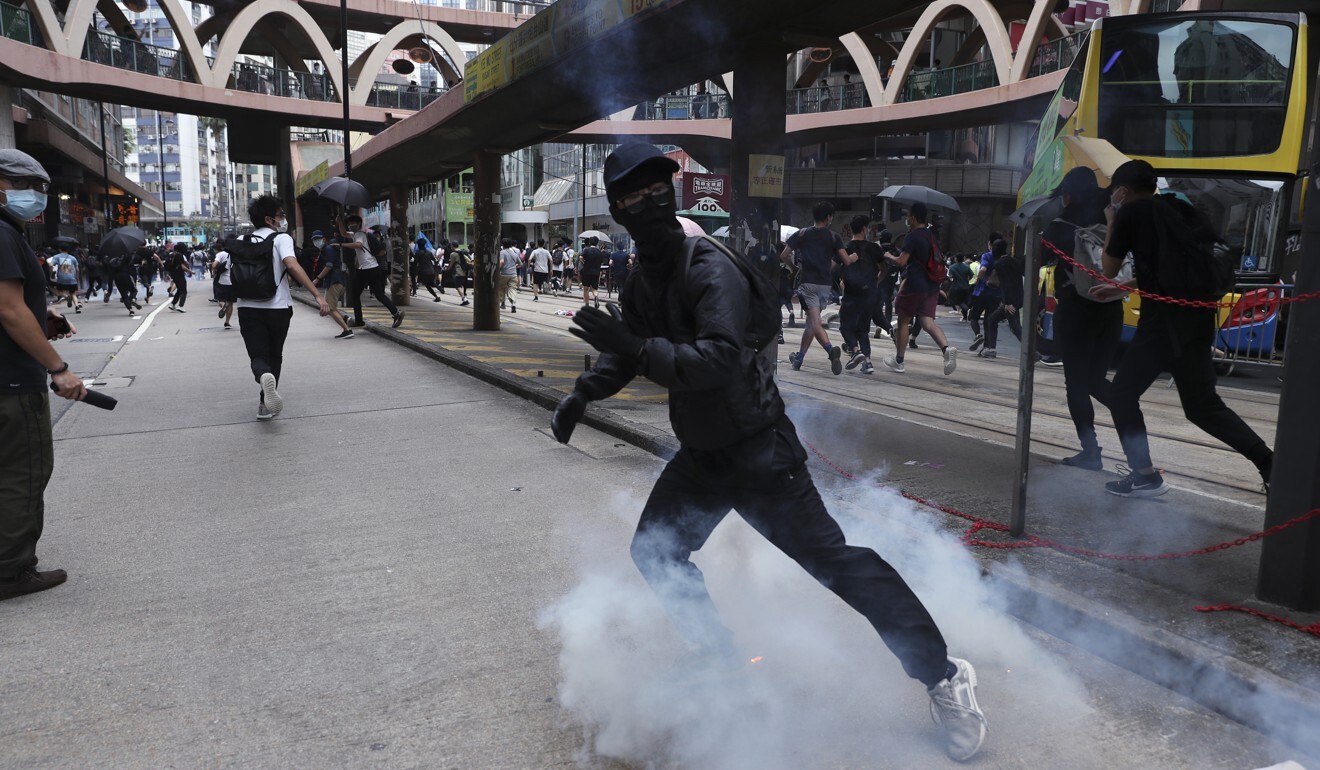
Two Sessions 2020: Beijing will not be swayed over national security law for Hong Kong, China’s vice-premier tells delegates
- Decision was reached after taking into account the interests of the country and city, local deputy to legislature quotes Han Zheng as saying
- Law will only affect three groups – pro-independence activists, violent radicals and protesters seeking to derail economy, according to top official
Beijing’s determination to implement a new national security law for Hong Kong must not be underestimated, as the decision was reached after careful consideration of the interests of the country and city, Vice-Premier Han Zheng told local deputies to China’s legislature on Sunday.
Han’s remarks came amid growing concern both in Hong Kong and the international community over the move, and hours before police fired rounds of tear gas as thousands of residents took to the city’s streets in protest. The law, which would be passed without scrutiny by the local legislature, would allow mainland agencies to operate in the city as needed, and require the Hong Kong government to establish new institutions to safeguard national security.
Han, the state leader overseeing Hong Kong and Macau affairs, met the local delegation to the National People’s Congress [NPC] at the Great Hall of the People in Beijing.

00:51
Hong Kong leader Carrie Lam vows ‘full support’ for national security law
“Don’t underestimate Beijing’s determination. When the decision is made, we will implement it till the end,” the delegation’s deputy convenor, Wong Yuk-shan, quoted the leader as saying. “Han stressed that the move was made after careful deliberation, taking into account the long-term interests of Hong Kong, and more importantly, of the state and the nation.”
State broadcaster CCTV reported Han as saying the law would target only a small faction of people who advocated Hong Kong independence and the “dark forces” behind them. The term is used by Beijing to refer to supposed overseas support for the anti-government movement.
According to sources from the meeting, Han said only three groups would be affected – pro-independence activists, violent radicals and protesters seeking to derail the city’s economy with a mentality of “if we burn, you burn with us”.
National security law will not damage Hong Kong’s freedoms, foreign minister says
CCTV reported the vice-premier also offered assurances on the “one country, two systems” framework governing relations between the city and the central government, saying Beijing would fully implement the policy, as well as the principle of “Hong Kong people administering Hong Kong”, with a high degree of autonomy.
At a press conference in Beijing on Sunday, Chinese Foreign Minister Wang Yi was asked whether the central government was worried the United States would impose sanctions on Hong Kong over the legislation.
“Hong Kong affairs are China’s domestic affairs … and defending national security is the responsibility of the central government in any country,” Wang said. “The decision made by the National People’s Congress … would not affect Hong Kong residents’ rights and freedom, or foreign investors’ legitimate interest in Hong Kong.”

Earlier more than 200 parliamentarians and policymakers from 23 countries issued a joint statement condemning Beijing’s decision, saying “the integrity of one country, two systems hangs by a thread”.
A source who attended the meeting in Beijing said Han argued national security laws in Britain and the United States were “more stringent” than the one slated for Hong Kong.
Brave Chan Yung, another NPC delegate, quoted Han as saying: “The central government’s decision is a responsible one for all Chinese people, the nation and its history … History will make the accurate judgment.”
More than 200 parliamentarians and policymakers condemn Beijing’s proposal
In 2003, the Hong Kong government was forced to shelve a national security law bill after an estimated half a million people took to the streets in opposition, amid fears it would curb rights and freedoms.
“It is not a replacement, and the Hong Kong government should continue to enact its own law to fulfil its constitutional responsibility,” NPC deputy Witman Hung Wai-man quoted the vice-premier as saying of Beijing’s proposal.
Han also called on local delegates to support Chief Executive Carrie Cheng Yuet-ngor and the government in tackling deep-rooted issues facing the city, namely housing, education and growing income inequality. But the more immediate concern is promoting the new law in a language the public can understand, according to Hung.

The Hong Kong Alliance in Support of Patriotic Democratic Movements of China staged a demonstration outside Beijing’s liaison office in Sai Ying Pun to call attention to the Tiananmen Square crackdown on June 4, 1989, and to oppose the proposed law.
An alliance of pro-Beijing groups, led by lawmaker Starry Lee Wai-king, announced they would set up street booths to collect signatures in support of the law.
A survey carried out by a pro-establishment group between Friday and Sunday found that 65 per cent of respondents agreed Hong Kong had a responsibility to protect national security. Some 26 per cent of respondents disagreed, according to the poll conducted by an institute under the pro-Beijing Bauhinia Magazine.
Fifty-four per cent agreed that the city was under the influence of foreign forces and pro-independence powers colluding together, while 34 disagreed.
Help us understand what you are interested in so that we can improve SCMP and provide a better experience for you. We would like to invite you to take this five-minute survey on how you engage with SCMP and the news.

